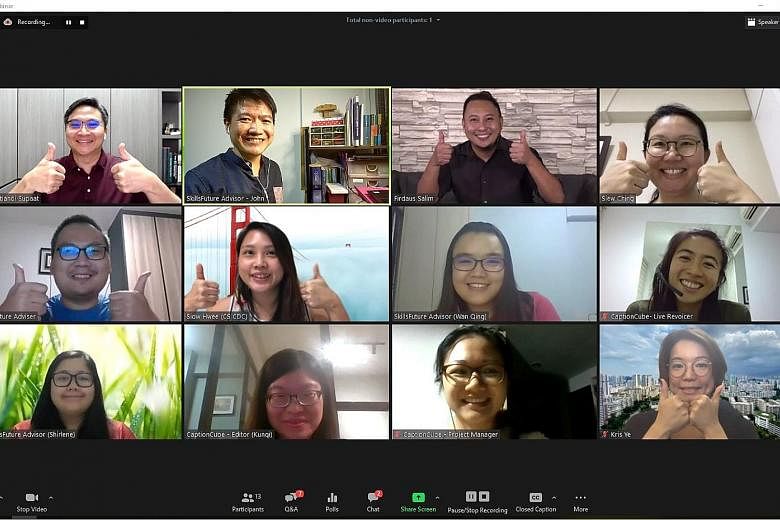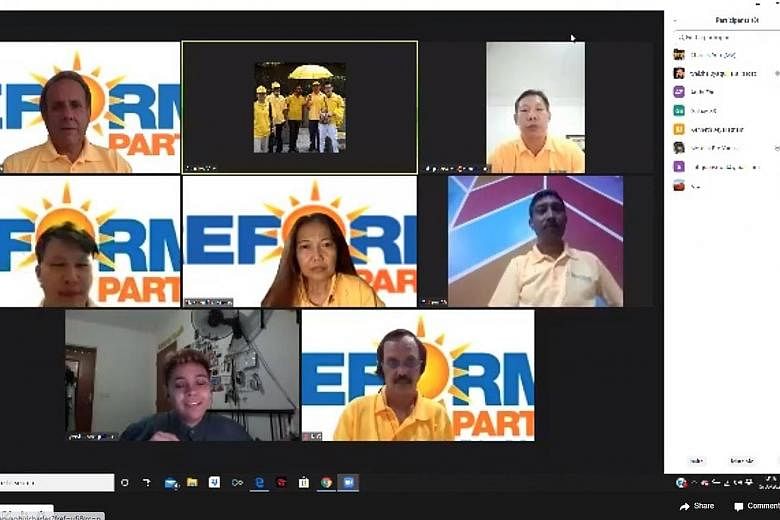The call-and-response between speaker and crowd, the cheers and jeers - if the upcoming general election is held during phase two of Singapore's reopening, the absence of physical rallies with their boisterous atmosphere will be a key difference from previous electoral cycles.
What is left is likely to be a sombre GE missing the crowds, colour and character of hustings past, which will play to the strengths of the ruling People's Action Party (PAP), political observers tell Insight.
Preliminary campaigning guidelines announced on Thursday by the Elections Department (ELD) will see political parties holding e-rallies online in lieu of physical ones.
While the regulations "cut both ways" for the PAP and opposition parties, the rules favour the incumbent, which already has the advantage of familiarity among voters, particularly when Covid-19 has restricted physical interactions between candidates and the public, says former Nominated MP Zulkifli Baharudin.
While candidates can conduct walkabouts, the new rules stipulate that only five people will be allowed per group. Outreach activities must take place from a safe distance, with candidates in masks and minimising physical contact with members of the public.
PAP office-holders have seen their public profiles raised in recent days - even before election season begins - as Prime Minister Lee Hsien Loong and Cabinet ministers spoke to Singaporeans in a series of national broadcasts this month that concluded with Deputy Prime Minister Heng Swee Keat's address yesterday evening.
"Let's be honest with ourselves - the national broadcasts are an opportunity for the ruling party... to garner support," says political observer Felix Tan, an associate lecturer at SIM Global Education. "While it may not be overtly seen as a political rally, so to speak, it does act as one, and in this instance, the PAP has a huge advantage."
Noting that opposition veterans such as the Workers' Party's Mr Low Thia Khiang, Ms Sylvia Lim and Mr Pritam Singh "are more 'rally' people than 'broadcast' people", NUS political science don Bilveer Singh says the PAP has shown strategic brilliance in mining a crisis.
"Covid-19 has been a game changer for the PAP... For the opposition, the little advantage which they had has also been wiped out through the technical (issue) of social distancing," he says.
The playing field will be more level once the Writ of Election is issued, as the ELD has said political parties will get more airtime on national TV, with new constituency political broadcasts to be aired on Mediacorp's Channel 5. This is on top of the customary two party political broadcasts permitted for each party that will be aired on 19 television and radio channels.
While opposition party leaders welcome the increased airtime for candidates, many bemoan the loss of rallies, which almost always draw larger crowds for the opposition than the PAP.
Rally attendance may not directly translate to votes but "if there are no rallies, then there is no hype", says Reform Party chairman Andy Zhu.
"With online or television broadcast, (voters) might not be as enthusiastic and they can't shout and roar," he says. "The emotional aspect is important."
Besides letting voters gauge candidates up close, rallies also let candidates engage voters more effectively with their party messages, says Red Dot United, Singapore's newest political party.
"There is also concern that older voters who are less digitally connected may miss the political parties' messages, which would largely be online," it says in a statement, and called for ELD to make it compulsory for the mainstream print media to announce streaming times for online rallies of all parties during the election period.
At the same time, one should not overestimate the effect of physical rallies on voter sentiment, said Singapore Management University associate professor of law Eugene Tan, even if they are "a multi-sensory experience" that cannot be replicated online.
"Rallies are like political festivals that happen once every four to five years, so people look forward to the sheer energy they generate, (but) it's overrated to say that rallies are game changers in persuading people to vote for a particular political party," he says.
But an election without the sense of occasion marked by rallies and campaign activities could deepen political apathy and lead to voter disengagement, especially among the young, says media veteran Woon Tai Ho, CEO of media outfit Rights Asia.
"If you have a good speaker, someone who is grounded in facts, someone who can actually hold an argument together, it could be a good debate, but people don't want to watch (party political broadcasts) because most of the time it's bad TV, with candidates reading off the auto cue," he says.
"That's not what politics is about and it will just reinforce the clinical aspect of Singapore politics - that it is uneventful and unexciting."
But, pundits add, an anodyne election may not necessarily be a foregone conclusion, particularly if politicians make tactical errors and underestimate the viral nature of social media and the online space.
• Additional reporting by Fabian Koh and Yuen Sin.


